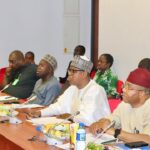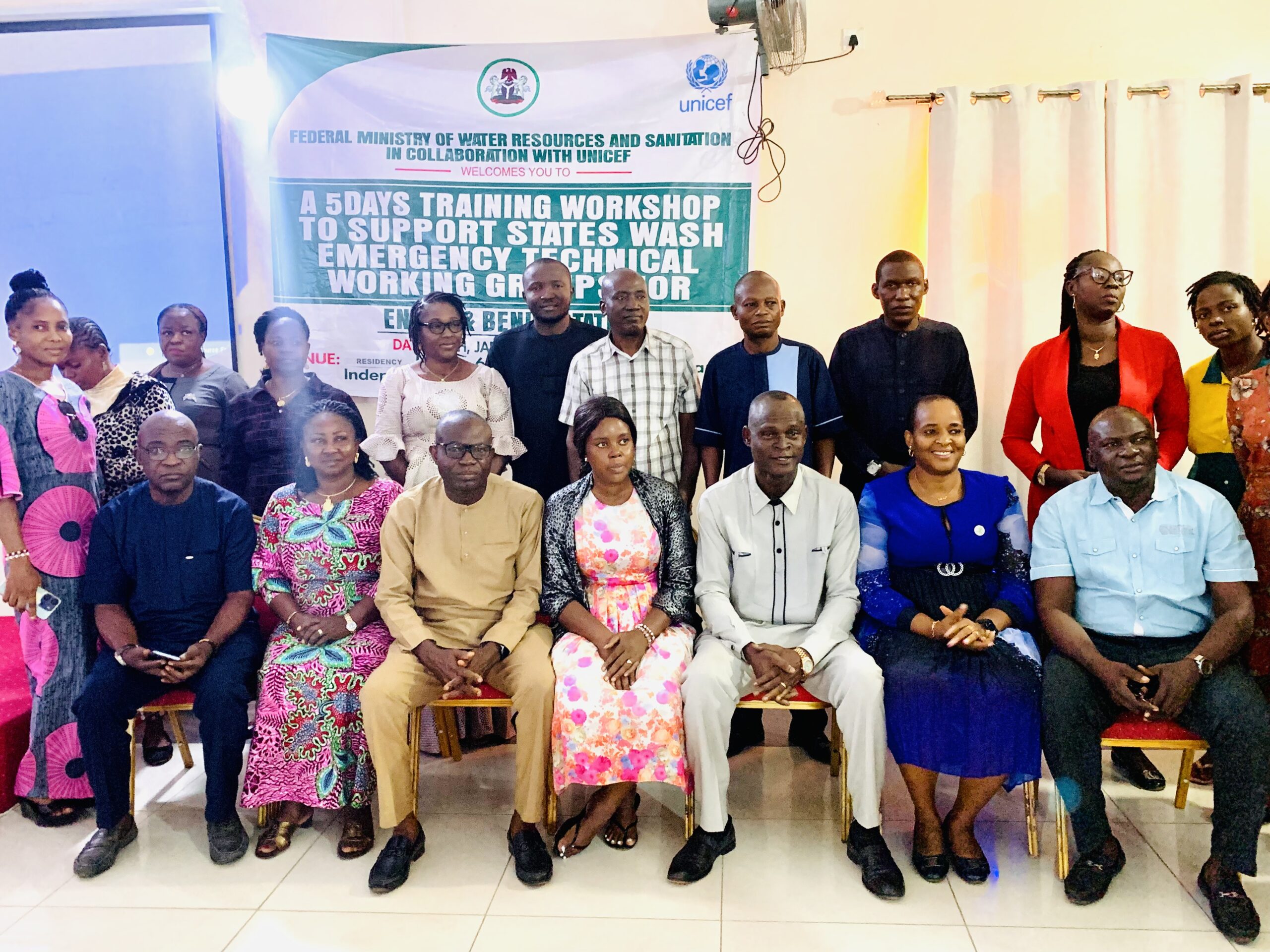By Tosin Kolade
Mr Ibiyemi Olu-Daniels, an official of the Federal Ministry of Water Resources and Sanitation, has called for the establishment of state-owned water treatment plants to enhance emergency preparedness and response.
Olu-Daniels made this call on Tuesday at the Training Workshop to Support States’ Water Sanitation and Hygiene (WASH) in Emergency Working Group in Enugu.
He emphasised the need for proactive measures to prevent water scarcity during crises.
The official underscored the necessity for state governments to proactively establish such facilities to mitigate potential water shortages during emergencies.
Olu-Daniels highlighted the scarcity of water points like boreholes as a significant challenge during emergencies, leading to preventable diseases and deaths.
He urged state governments to invest in water treatment plants as having them ready before emergencies occurred would facilitate swift responses and interventions.
“These mobile units can be deployed to various locations, treating large water volumes that are then stored and distributed within affected communities.’’
Addressing concerns about the associated costs, he said that emphasised the long-term advantages and benefits, noting that the expense should be viewed as an investment in saving lives.
He clarified that the responsibility lied with state ministries of water resources, not national emergency management agencies.
The director said that each state government must have at least one water treatment plant for emergency situations.
He said that access to water was fundamental to life; hence the need for preparedness and prevention.
“When there is an emergency, they take the treatment plants to the locations and it can treat a large water volume and then stored and further distributed for people in the community; it is a mobile equipment that can be moved from place to place.
“When we supply a location for two days and another location for another two or three days, before you know it in two weeks, we will have covered so many areas during emergency.
“Although it is quite expensive, but it has its advantages and benefits; It is not NEMA or SEMA, but state ministries of water resources.’’
He expressed dissatisfaction with the current low political will of some states, prompting plans for advocacy visits to encourage commitment to Water, Sanitation, and Hygiene (WASH) initiatives.
The director stressed the importance of prioritising emergence preparedness and prevention over reactive responses.
He said that that intervening after deaths occurred led to increased spending, whereas adequate preparation and prevention resulted in more cost-effective interventions.
Olu-Daniels said part of the action plan for the year would be in leveraging existing strategies of preparedness, prevention, and response.
According to him, his ministry aims to educate states and coordinate efforts to implement the WASH in Emergency (WIE) action plan.
Olu-Daniels emphasised the need for continuous advocacy to bolster political will and the commitment of all stakeholders in addressing water-related emergencies.
The News Agency of Nigeria (NAN) reports that the WASH in Emergency Working Group was established in 2012, when the country experienced serious devastating flood that affected 85 million people from 14 states.
The group has since remained active, especially in the North-East where IDPs exist and have responded immediately on outbreaks.
The membership cuts across WASH sector players from Institutions, Development Partners, International and Local NGOs, CSOs responding to WASH issues in the country, with UNICEF as its co-lead. (NAN) www.nannews.ng
Edited by Chijioke Okoronkwo












